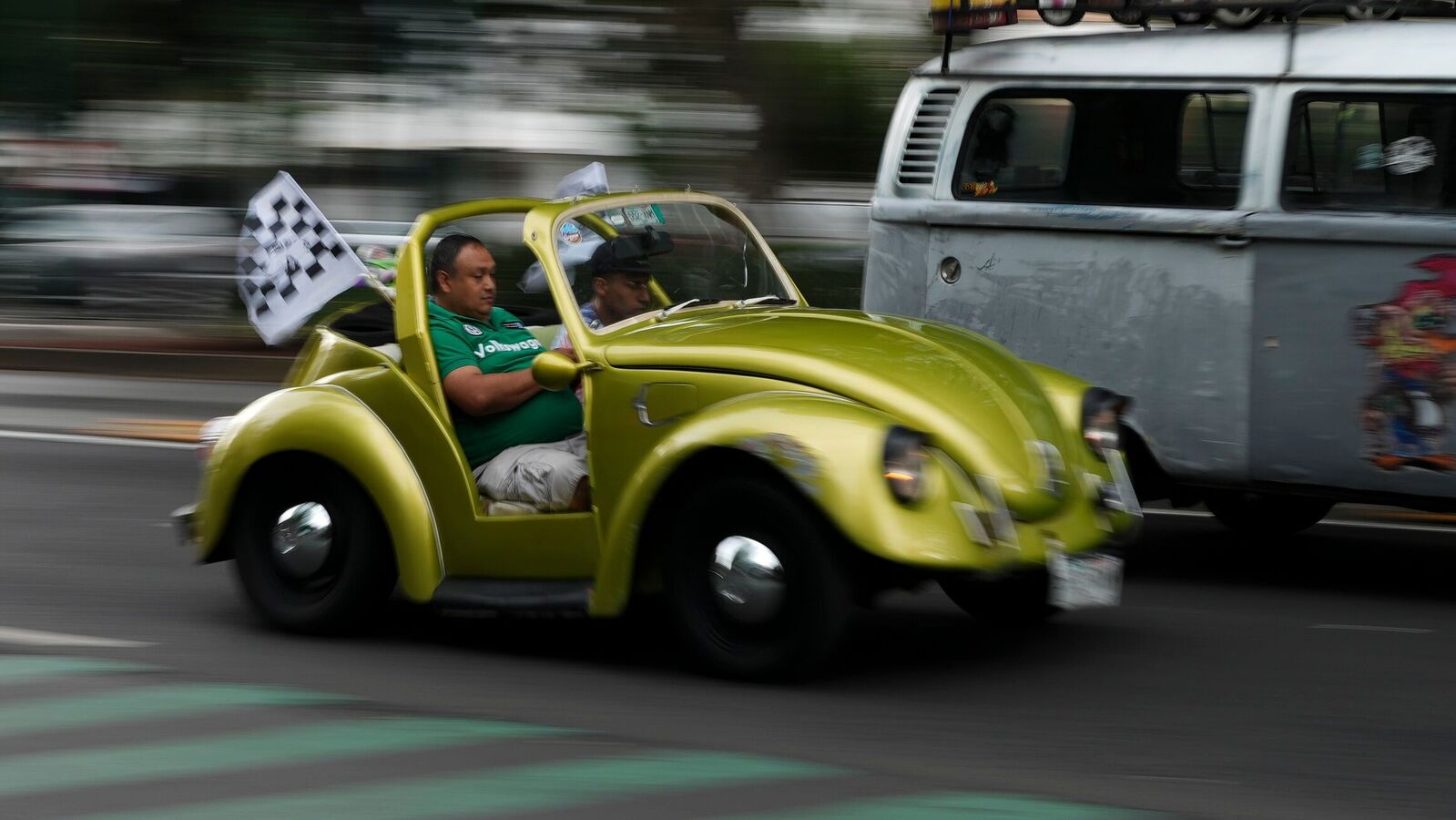She presses her foot on the pedal, passes a lime green Beetle like hers, then one marked with red and yellow, then another painted a bright sea blue.
“No other car gets up here,” she said. “Just the vocho.”
The Volkswagen Beetle, or “vocho” as it’s known in Mexico, may have been born in Germany, but in this hilly neighbourhood on the fringes of Mexico City, there’s no doubt about it: The “Bug” is king.
The Beetle has a long history in the country’s sprawling capital. The old-school models like these — once driven as taxis — used to dot city blocks as the quirky look captured the fascination of many around the world. It was long known as “the people’s car.”
But after production of older models halted in Mexico in 2003, and the newer versions in 2019, the Bug population is dwindling in the metro area of 23 million people. But in the northern neighbourhood of Cuautepec, classic Beetles still line the streets — so much so that the area has been nicknamed “Vocholandia.”
Taxi drivers like Navarro say they continue to use the vochos because the cars are inexpensive and the engine located in the back of the vehicle gives it more power to climb the neighbourhood’s steep hills.
Navarro began driving Beetles for work eight years ago as a way to feed her three children and put them through school.
“When they ask me what I do for work, I say proudly that I’m a vochera (a vocho driver),” Navarro said a day before the International Day of the VW Beetle on Saturday. “This work keeps me afloat … It’s my adoration, my love.”
While some of the older cars wobble along, paint long faded after years of wear and tear, other drivers dress their cars up, keeping them in top shape.
One driver has named his bright blue car “Gualupita” after his wife, Guadalupe, and adorns the bottom with aluminium flames blasting out from a VW logo. Another painted their VW pink and white, sticking pink cat eyes on the front headlights.
Mechanics in the area, though, say driving vochos is a dying tradition. David Enojosa, a car mechanic, said his family’s small car shop in the city used to sell parts and do maintenance primarily on Beetles. But since Volkswagen halted production five years ago, parts have been harder to come by.
Also Read : Volkswagen Tharu XR SUV revealed for China, based on the VW Taigun sold in India
“With the current trend, it will disappear in two or three years,” Enojosa said, his hands blackened by car grease. “Before we had too many parts for vochos, now there aren’t enough … So they have to look for parts in repair shops or junkyards.”
As he spoke, a customer walked up carrying a worn down bolt, looking for a replacement for his Volkswagen’s clutch.
The customer, Jesus Becerra, was in luck: Enojosa strolled out of his shop holding a shiny new bolt.
Less lucky drivers have to do laps around the neighbourhood looking for certain parts. Even more cars fall into disrepair and don’t pass emissions inspections.
But Becerra is among those who believed that the vochos will endure in his neighbourhood.
“You adapt them, you find a way to make it keep running,” he said. “You say, ‘We’re going to do this, fix it and let’s go. ’”
Others like Joaquin Perez say continuing to drive his 1991 white, Herbie-style Beetle is a way to carry on his family tradition. He grew up around Bugs, he explained as his car rumbled. His father was a taxi driver just like him and he learned how to drive in a VW.
Also Read : Volkswagen to bring a hot-hatch trifecta in 2025
Now, 18 years into working as a driver himself, his dashboard is lined with trinkets from his family. A plastic duck from his son, a frog stuffed animal from his daughter and a fabric rose from his wife.
“This area, always, always since I can remember has been a place of vochos,” he said. “This here is the car of the people.”
First Published Date: 24 Jun 2024, 08:47 AM IST

